If you’re interested in bodybuilding, the main goal is to increase your muscle mass by lifting weights and eating a balanced diet. Bulking is an integral aspect of bodybuilding. However, the process of bulking requires adequate nutrition, as well as lifting weights. It is essential to eat the right bulking foods to ensure proper nutrition.
In the article below, you’ll discover the most effective food sources for bulking. In this article, we will discuss the essentials for bulking and the most effective protein sources.
Additionally in addition, you will learn about the top sources of carbohydrates and fats that are beneficial for bulk. Additionally, you’ll receive some suggestions for successful bulking. To learn more, continue reading to the conclusion of this article.
Why Does Bodybuilding Require Bulking?
Generally speaking, bodybuilding comprises the two steps of bulking as well as trimming. In the first, it is the aim to build weight and muscles, while the second involves the reduction of body fat.
It is basically an exercise in diet where you consume extra calories to aid in an increase in muscle mass and weight growth. It is an everyday practice that bodybuilders and athletes use to build strength and bulk.
Thus, bulking is the increase in calories your body is consuming during the intense workout.
This is the time when you develop muscles within your body. This is where you need to drink more energy than your body requires. But, you must do it for a specific amount of duration (4-6 months).
The extra calories you consume are a vital fuel for muscle growth. Additionally, it gives muscle strength to your body by exercises in weight exercises.
The Greatest Foods for Bulking: An Overview
When you bulk, your primary goal is to provide yourself with more calories than what you use and create an excess of calories.
In addition, it generates an extra amount of energy, and with the aid that your body, builds muscles. Additionally, this energy can help heal damaged tissues and also fuel the intensity of your workout.
The process of bulking is among the most crucial aspects of growing muscle. This is because, if you want to build muscle mass, it is essential to supply your body with sufficient energy. This will allow it to create and repair damaged muscle tissues following your workout.
If you are bulking up, it doesn’t mean you must consume the most food possible. You need to select the most effective bulking food and also count your macronutrients. In this way, you will be able to help your muscular growth and limit fat gain.
Key Nutrients For Bulking
If you’re looking to get the ideal size, it is essential to make wise food choices. If your food choices are poor, it could cause “dirty mass.” In the end, you’ll end up with lots of fat accumulated and a minimal increase in muscle mass.
In fact, for healthy bulking, it is essential to take in quality food and reduce fat gain. This is because the goal is to boost your muscle gains and to ensure a healthy metabolism.
If you are bulking, it is important to concentrate on carbohydrates, protein, and healthy fats. Here’s a breakdown of every nutrient that you need for the growth of your muscles:
Proteins
The importance of proteins in promoting muscle growth and repair is of the highest importance. This is due to the fact that proteins are the main building blocks for muscles. So, in your bulking phase, try to get a greater protein intake.
Eat 1g of protein per pound of body weight. For instance, if your weight is 180lbs and you have 180g of protein per day while you’re bulking.
A few good sources of Lean proteins include eggs, lean meats and other products fish, poultry, dairy products and beans, lentils, and so on.
Carbohydrates
Carbohydrates can help provide energy for vigorous workouts. In addition, they aid in creating muscles with more mass. In the end, carbohydrates replenish the glycogen in your muscles.
If you’re building muscle, you should take 1.5 grams of carbohydrates for each pound of weight. For instance, if your body weight is 180lbs, you should consume between 250 and 270 grams of carbs a day when you’re bulking.
If you are looking to bulk up your diet with carbs, concentrate on eating complex carbs. They include brown rice, whole grains, fruit, sweet potatoes, as well as vegetables.
Fats
Healthy fats are vital to maintain general health and the production of hormones. Additionally, it aids in the absorption of nutrients. So, to get healthy fats, include sources such as avocados, nuts, seeds, olive oil, fat fish, and so on.
Top Sources of Protein for Bulking
- Lean Meats: The best protein sources include turkey or chicken. They have lower saturated fat levels as compared to red meat. For example, you’ll receive an average of 18-25 g of protein out of 100 grams of chicken breasts.
- Dairy Products: The majority of the time, Greek yogurt, cottage cheese, and milk are large amounts of protein and calories. This is why they can help build muscles quicker. In addition, it aids in regaining and growing your muscles because of its slow and constant dissolution.
- Fish and Seafood as salmon well as tuna, and shrimp, are rich in proteins and healthy fats. Therefore, it is recommended to have them at least at times.
- Eggs: Eggs are an excellent and fast-acting source protein that is lean protein. Also, they are a source of healthy cholesterol. However, don’t consume the yolk of your egg (yellow part) at least 2 times the course of a day since it can increase the amount of cholesterol inside your body. In addition, you can eat several egg whites from boiled eggs within a single day. It is a great source of lean protein.
- Proteins from plants. The plant-based proteins are healthy and lean while being healthy. Good sources of such protein include beans, lentils, tofu, and tofu.
- Protein Supplements: If you eat too much, you’ll be bloated by the end of your day. Therefore, you require protein supplements to aid in boosting the amount of protein you consume throughout the day. The most common protein supplements include casein protein, whey protein as well and plant-based proteins.
Top Sources of Carbohydrates for Bulking
- Sweet Potatoes are A great post-workout food, which is packed with nutrients and fiber. Additionally, it can help restore glycogen levels in your body.
- Fruits many kinds of fruit are loaded with different carbohydrates and nutrients. In addition, they are also rich in antioxidants for your body. For instance, a great option for a fruit to eat following a workout is the banana.
- Whole Grain: You can find whole-grain pasta and bread to help consume complex carbohydrates. They are generally rich in nutrients, fiber, and minerals. In addition, it is also possible to choose brown rice for high-quality carbs.
- Lentils along with Quinoa: Quinoa, beans, and lentils are fantastic sources of carbohydrates.
Top Sources of Fat for Bulking
- Nuts and seeds. The most vital and healthy sources of fats include Chia seeds, almonds, flaxseeds, walnuts, and walnuts.
- Oils for example, coconut oil, olive oil, as well avocado oil, are excellent choices when you are considering fat in your diet. Therefore, you should try using olive oil and coconut oil for cooking. In this way, you will increase the amount of healthy fats as well as calories.
- Avocados. The avocado is rich in nutrients and fats. In essence, they are monounsaturated fats that provide healthy calories and fats in your food. It is also a good source of antioxidants as well as vitamin E.
- Fatty fish Mackerel, salmon, and sardines, are fish with a high fat content that can help you maintain your health and build a healthy weight. Additionally, a high dose of Omega-3 fats will improve your joints and the health of your cardiovascular system.
- Dairy: Full-fat yogurt and cheese can help restore your muscles’ glycogen stores. This is beneficial to the process of building muscle.
Tips For Effective Bulking
Here are a few of the main tips for effective bulking
- The frequency of your meals. Consuming multiple meals every day is crucial to ensure the proper supply of nutrients and a faster metabolism. Therefore, ensure that you take small meals at different times during your day.
- Caloric Surplus: Always keep track of your calories and your nutritional intake. If, for instance, you notice a surplus in calories to aid in muscle growth and strength, you’ll have more energy to perform intensive workouts and to repair damaged tissues.
- Hydration. Because you’re doing a lot of exercise and eating lots of food, and drinking a lot, it is essential to stay hydrated. This will improve the overall performance and health.
- Consistency. If you’re in the bulking phase, make sure you stick to your diet and exercise. Additionally, ensure that you modify your intake. For instance, you could modify your intake of nutrients and calories by your progress and objectives.
Typical Errors to Avoid
To ensure that your bulking is effective, there are a few typical mistakes to be aware of:
- Be careful not to eat too quickly, or it could be tough to cut later.
- Be sure that there isn’t an enormous gap between meals.
- Resting enough will not benefit your muscles. In essence, your muscles require rest to allow for growth. Therefore, it is beneficial to get enough rest when you exercise often.
- At least, you should do some cardio every week. This will help you boost your appetite as well as help you lose weight faster.
Summing Up
You now know the most effective food items to bulk up your diet and help you build your muscles and increase your muscle mass. But your intake of nutrients and your workout should be in sync. Only then can you achieve the results you want.

